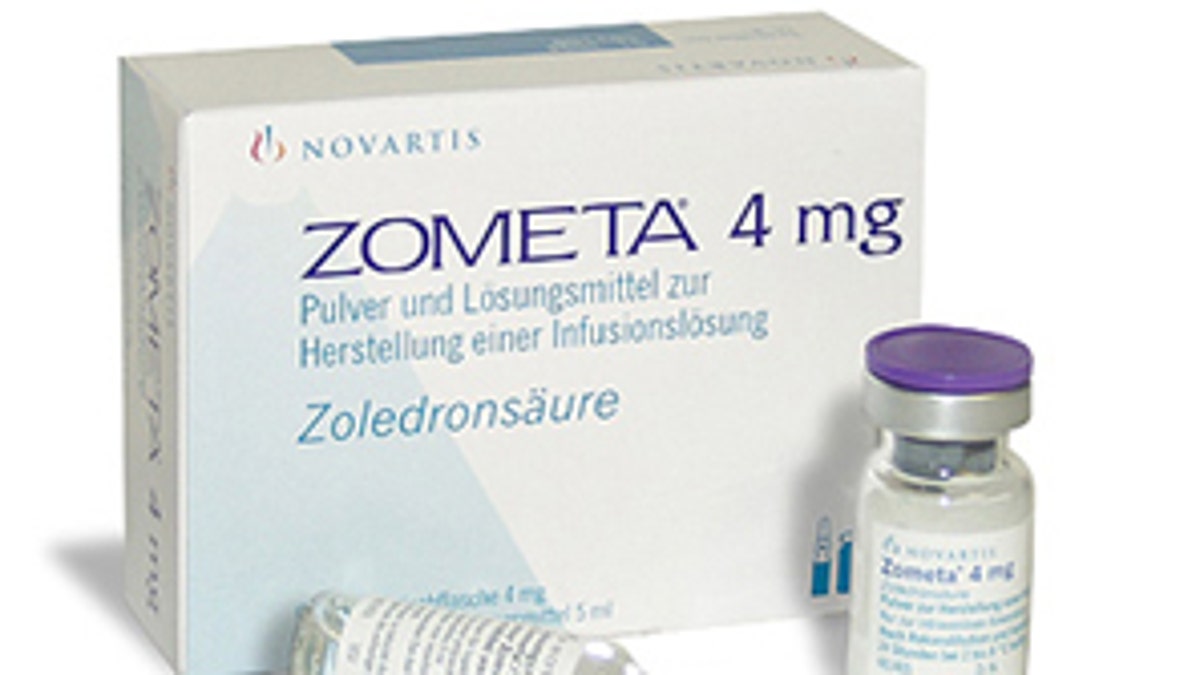
Doctors were mostly hoping to prevent complications and relapses when they gave young women a medicine to keep their bones strong during breast cancer treatment. Seven years later, they found it did more than that: The bone drug improved survival, as much as many chemotherapies do.
The study found a 37 percent lower risk of death among women who received the bone drug, Zometa. In absolute terms, it meant that 4 to 5 more women out of every 100 were alive seven years later.
It's especially impressive considering that the women took the drug, given as an infusion every six months, for only three years.
"The benefit persists" long after treatment ends, said study leader Dr. Michael Gnant of Austria's Medical University of Vienna. He presented the research this week at the San Antonio Breast Cancer Symposium.
Zometa (zow-MAY-tuh) should now be offered to all patients like those in this study - younger women forced into early menopause by hormone-blocking cancer treatments, some specialists said.
"It's a new standard of care," said Dr. James Ingle, a Mayo Clinic breast specialist who had no role in the study.
Bone drugs called bisphosphonates – sold as Fosamax, Boniva and Actonel – have long been sold for treating osteoporosis. Those are daily pills. Zometa, made by the Swiss company Novartis AG, is given intravenously to treat cancer that has spread to the bone.
Hope that it could do more grew in 2008, when Gnant reported that it lowered the risk of a cancer recurrence in a study of 1,800 premenopausal women with early-stage breast cancer. All had surgery followed by hormone blockers, and half also received Zometa.
Now, with seven years of follow-up, researchers see that Zometa not only helped keep cancer from coming back, but also improved survival. There were 33 deaths among women given the bone drug and 49 among those not treated with it.
That magnitude of benefit is comparable to many chemotherapy treatments. Researchers think because Zometa strengthens bones, it's tougher for cancer to spread there and the drug may also have direct effects against circulating cancer cells or microscopic tumors.
Zometa's side effects were mostly fever and bone and joint pain, and doctors saw no cases of jawbone decay, a serious problem long linked to bisphosphonates. Zometa costs more than $1,000 in the U.S. and about half as much in Europe, though the price may drop when its U.S. patent expires in 2013. Novartis helped pay for the study and Gnant consults for the company.
The bone drug proved disappointing though in a large study last year in postmenopausal women, who account for three-fourths of all breast cancers. But there was a glimmer of hope in the oldest patients.
"They benefitted substantially as long as they were well past menopause," said Dr. Peter Ravdin, director of the breast cancer program at the UT Health Science Center in San Antonio, who also had no role in the research.
Other studies reported at the conference this week strengthen the view that Zometa works best in women with little estrogen. A consistent picture is emerging, Ravdin said.
The cancer conference is sponsored by the American Association for Cancer Research, Baylor College of Medicine and the UT Health Science Center.








































